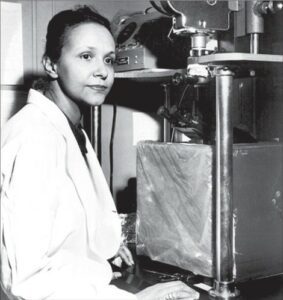
While there are MANY black American pioneers in health, I was interested in learning about Jane Cook Wright (1919-2013). My first attraction was her name, Wright, my last name at birth; second because she was a woman; and third because of the area of her work, treatment of cancer, particularly leukemia and lymphoma. I have an uncle who died because of leukemia. The cancer did not kill him, but he knew it would and he knew the pain, so he took his own life because at that time there was no treatment, no hope.
Jane’s own father died of tuberculosis in 1952. Someone I love very deeply lived in Brazil and was exposed to tb, tested positive and was successfully treated so it will never be a threat to her. Unfortunately, in 1952 tb was still taking lives in this country.
Here is some of Jane’s story:
The daughter of one of the first African American graduates of Harvard Medical School, Wright grew up with a keen interest in healthcare. Her father, Dr. Louis Wright, was also the first Black doctor appointed to a staff position at a municipal hospital in New York City, and in 1929, the city hired him as police surgeon — the first African American to hold that position.
After earning her medical degree, Dr. Jane Cooke Wright worked alongside her father at the Cancer Research Foundation in Harlem, which her father established in 1948. Together, father and daughter researched chemotherapy drugs that led to remissions in patients with leukemia and lymphoma.
In 1952, when her father died of tuberculosis, Wright became the head of the Cancer Research Foundation at age 33. She created an innovative technique to test the effect of drugs on cancer cells by using patient tissue rather than laboratory mice. She advanced to work as the director of cancer chemotherapy at New York University Medical Center, and she was an associate dean at New York Medical College.
The New York Cancer Society elected Wright as its first woman president in 1971. Her research helped transform chemotherapy from a last resort to a viable treatment for cancer.
This information is from 12 Black American Pioneers Who Changed Healthcare

Recent Comments